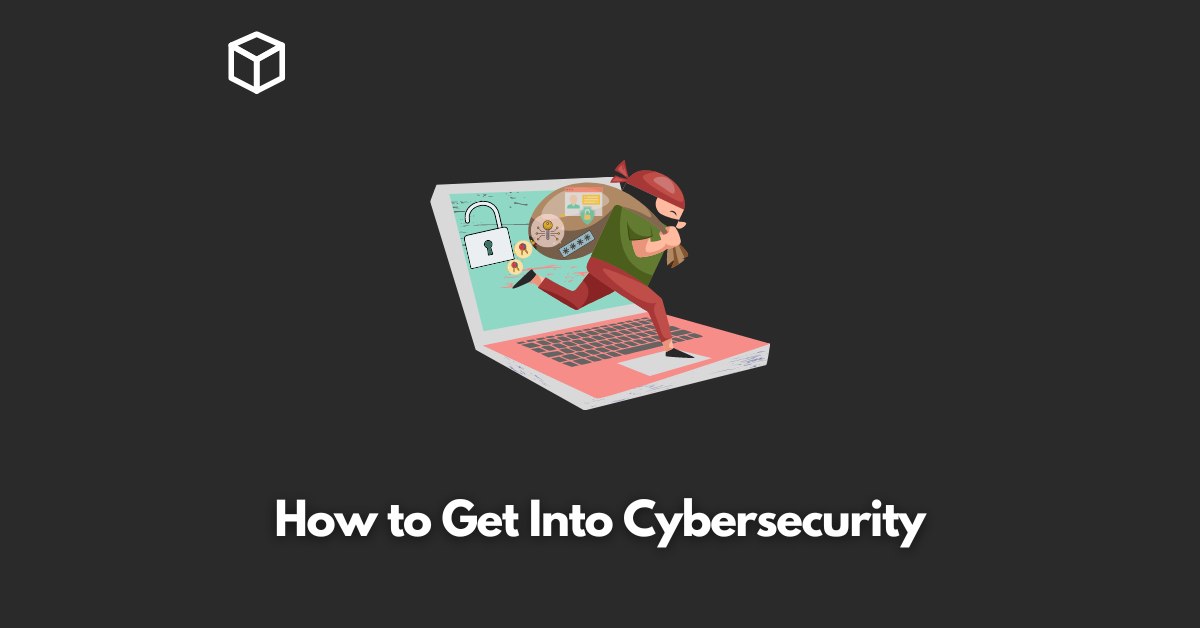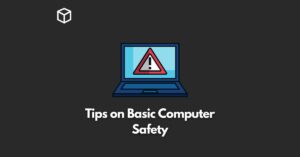Cybersecurity is a rapidly growing field that is becoming increasingly important as technology continues to advance.
It involves protecting computer systems, networks, and data from unauthorized access, use, disclosure, disruption, modification, or destruction.
With the rise of cyber threats such as hacking, phishing and ransomware, organizations are investing more in cybersecurity to protect their sensitive data and intellectual property.
Many people think that they need experience to break into this field, but that is not the case. There are many ways to get started in cybersecurity without prior experience.
In this article, we will explore the various ways to get into cybersecurity with no experience.
Educate Yourself
To get into cybersecurity, it is important to have a strong foundation in computer science and networking concepts.
This includes understanding how computer systems and networks work, as well as the various security measures that can be implemented to protect them.
One of the best ways to gain this knowledge is through online resources, such as free online courses.
Some popular online resources include Coursera, Udemy, and edX.
These platforms offer a wide range of cybersecurity-related courses that cover topics like cybersecurity fundamentals, ethical hacking, and network security.
Additionally, certifications can help demonstrate knowledge in the field and can be helpful when applying for jobs.
Some popular certifications include CompTIA Security+, Cisco Certified Network Associate (CCNA), and Certified Information Systems Security Professional (CISSP).
These certifications validate your knowledge and skills in the field and can help you stand out when applying for jobs.
Participate in Cybersecurity Challenges
Participating in cybersecurity challenges and competitions is another great way to build skills and gain experience in the field.
These challenges and competitions typically involve solving real-world problems that cybersecurity professionals face on a daily basis.
Some popular cybersecurity challenges and competitions include CyberPatriot, the National Cyber League, and the Cyber Security Challenge.
These challenges provide an opportunity to test your skills and knowledge in a real-world scenario and can help you improve your problem-solving abilities and critical thinking skills.
Get a Cybersecurity Internship
Internships are another great way to gain valuable hands-on experience in cybersecurity.
Not only do internships provide an opportunity to work on real projects and gain real-world experience, but they also provide an opportunity to build a professional network.
To find and apply for internships, it is important to network with professionals in the field and tailor resumes and cover letters to highlight relevant skills.
You can find internships opportunities by looking at job boards, reaching out to cybersecurity companies or consulting firms, or even by contacting professors at local universities.
Build a Portfolio
Building a portfolio of projects can demonstrate skills and experience to potential employers.
This portfolio can include security assessments, penetration testing, and incident response simulations.
These projects demonstrate skills and knowledge in the field and can be used to showcase the skills to potential employers.
It’s also a good way to show your ability to apply what you’ve learned to real-world situations.
You can also include your certifications and any relevant coursework, and even any volunteer work you’ve done in the field.
Conclusion
In conclusion, there are many ways to get into cybersecurity with no experience.
These include educating yourself through online resources, participating in cybersecurity challenges and competitions, getting a cybersecurity internship, and building a portfolio of projects.
With the right mindset and dedication, it is possible to break into this field and build a successful career in cybersecurity.
It is also important to stay updated with the latest developments in the field. Cybersecurity is a rapidly evolving field, and new threats and technologies are constantly emerging.
Keeping yourself informed about the latest trends and developments in cybersecurity will help you stay relevant and competitive in the job market.
So, take action and pursue the opportunities that are available to you.




